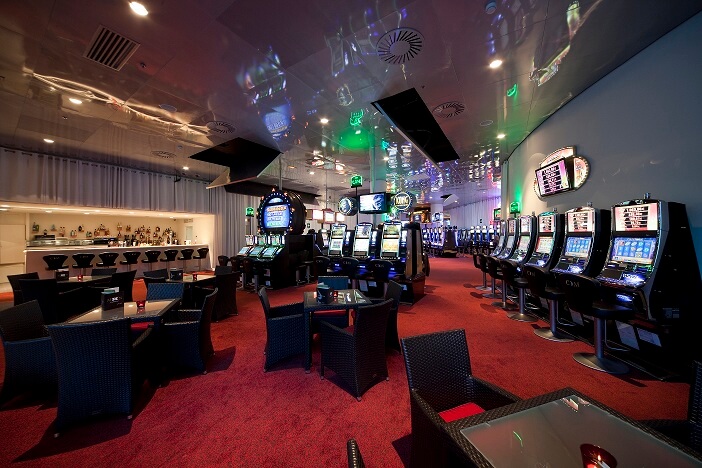
Gambling has been an essential part of human recreation for thousands of years, transforming through cultures and eras to become the dynamic casino activities we know today. From the ancient Chinese and Romans, who engaged in multiple forms of betting and luck, to the advanced gaming floors of contemporary casinos, the appeal of risk and reward has fascinated individuals across the globe. The transition from simple dice games and rudimentary betting setups to the lavish environments of modern casinos reflects considerable strides in both cultural standards and technological advancements.
As cultures evolved, so too did the complexity of gambling activities, with gambling activities emerging as a separate category of entertainment and thrills. These games have transformed from informal gatherings centered around traditional tables to expansive, opulent establishments designed to attract players. Today, we delve into this fascinating journey, analyzing how traditional practices laid the groundwork for the varied and thrilling casino games that bring joy to countless people worldwide.
spintax
Early Wagering Traditions
Wagering has significant roots in human history, with evidence of activities of chance originating from ancient societies. Archaeologists have found that as far back as 3000 BC, the Chinese were using primitive forms of gambling with dice made from bones. Similarly, ancient cultures of Mesopotamia engaged in wagering activities, often relying on the tossing of lots or dice to determine outcomes. These early forms of gambling served not only as entertainment but also played vital roles in social and cultural customs.
The Egyptians also were involved in gambling activities, with games that included betting on the outcomes of various occurrences, including sports and spiritual festivals. Items such as dice and depictions of players from ancient tombs demonstrate that betting was a popular pastime. It provided both leisure and a means of engaging in social connections, often linked to celebratory occasions or important gatherings. This behavior showed the universal appeal of chance and rivalry throughout history.
In ancient Rome, betting became a widespread practice among the citizens, as shown in references in literature and the establishment of guidelines around certain activities. meilleur casino en ligne français Romans enjoyed a variety of gambling activities, from wagering on horse races to playing games akin to modern-day board games. The legal system surrounding these activities began to take shape, establishing the foundations for betting regulations that would grow in the centuries to come. The popularity of gambling during this period set the stage for the development of casino games in the future.
The Evolution of Casino Games
Gambling games have gone through significant transformations from their roots to the modern-day entertainment offerings. In historical civilizations, gaming was frequently linked to ceremonial practices, with dice games found in Mesopotamia and wagering on the outcomes of events in old Rome. These initial forms of gambling laid the groundwork for the organized games we see today. The change from informal gambling to organized games happened as societies began establishing rules and venues for wagering, reflecting cultural values and practices.
The Middle Ages saw the emergence of card games, which gained recognition among the nobility of Europe nobility. Games like the first and the game baccarat became mainstays in social gatherings. The development of printing technology additionally facilitated the spread of playing cards, making them more accessible to the general public. As gambling houses began to multiply, these card games developed into adaptations that catered to wider audiences, eventually leading to the founding of casinos as specialized venues for gaming.
The 1900s marked a crucial point in the evolution of casino games, with the ascendancy of commercial casinos in Las Vegas and other betting centers. This era brought forth games like slot machines and modern variations of table games, complete with advanced graphics and detailed betting structures. The introduction of online casinos in the 1990s additionally revolutionized the gaming industry, allowing players to access a vast array of casino games from the comfort of their homes. Today, gambling games persist to evolve, blending traditional elements with advanced technology to create captivating experiences for players globally.
Contemporary Gaming Laws
In these years, the area of gaming laws has evolved considerably, notably as tech advances and internet-based gaming have become increasingly prevalent. Regulatory bodies around the globe have enacted numerous laws and standards to make certain that gaming activities are conducted justly, responsibly, and openly. These regulations often include aspects such as licensing, advertising, player protection, and sensible gambling measures. Authorities aim to mitigate problems such as gambling addiction and cheating while supporting a equitable gambling environment.
The emergence of internet casinos has created a need for a new approach to oversight. Many jurisdictions have set up specific internet-based gaming frameworks that serve online gambling, allowing operators to offer their offerings legally. These frameworks often require operators to get permits, adhere to strict safety standards, and provide customer support options to assist players. By vigilantly observing online activities, authorities can more effectively protect players from potential harm and make sure that gambling is conducted in a protected manner.
Furthermore, modern gambling regulations are progressively concentrating on sensible gaming strategies. Many casinos and internet-based platforms now implement features such as player exclusion, deposit limits, and breaks to help players control their gambling habits. Educational campaigns aimed at educating about the risks of gambling are also common. As the sector continues to expand, the emphasis on sensible gambling continues to be a cornerstone of regulatory efforts, showing a commitment to promoting a secure and pleasant gambling experience for all players.